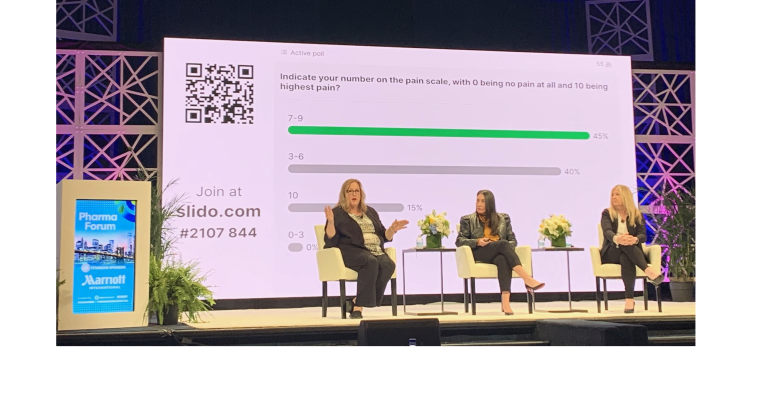The good news for the meetings business is that 2023 represented the start of a new era: a huge wave of face-to-face events. The bad news: The planning process has a whole new set of difficulties compared to pre-pandemic days, while staff experience among many meeting vendors is a far cry from what it was three years ago. In short, planners need to adapt in order to get things done.
In a general session held during the 18th annual Pharma Forum conference in late March, titled “Evolve Your Vendor Sourcing and Contracting Strategies to Maximize Flexibility,” three longtime medical-meeting pros discussed how they are handling the thorniest issues, starting with getting responses to requests for proposals.
“I am slammed with event-sourcing projects that are inside of three months out, so I’m not even pulling need-dates information from Cvent for those,” said Tori Thomsen, CIS, senior sourcing manager, Maritz Global Events. Such short lead times make it necessary to send out RFPs with firm response deadlines to multiple hotels in hopes of a match, but smaller sales teams with inexperienced staffers do not bode well for getting many replies.
To boost the response rate, “the number of questions on our RFPs has gone from 80 to just 25,” noted Karen Keirns, associate director of meetings and congresses, North America, for Eli Lilly & Company. “We are only asking the questions that help us narrow down all the possible sites, and then we ask the other questions to the finalists.”
One useful suggestion came from an audience member who is a rep for a third-party sourcing firm: “Our proprietary RFP lists all the concessions the group wants with a box next to each one for ‘yes/no/counteroffer’ responses. It gets you information that moves the site-selection process along much faster.”
Related Article: A Medical-Meetings Expert Address Critical Topics
For meetings of less than 150 participants, planners in the session noted this challenge: Hotels simply won’t commit sufficient meeting space less than three or four months out, as they seek out larger pieces of group business. “The space they make available to my smaller meetings won’t fit many of my sets,” said Thomsen. “We have to explain to clients that we need to rethink session formats and be creative to make it work in the host city they really want.” Jodi Cox, global account executive, global sales organization, for Marriott, said that “shifting the meeting pattern one day can help a property fill a hole and get you the space you need. Ask hotels when they have a need and you’ll probably find something that works for you, even less than two months out.”
Lastly, “put into your RFPs that a hotel should contact you if they can come close to your space requirements, rather than declining the business,” Thomsen advised. “Now they know you’re willing to adapt your sets and make it work.”





